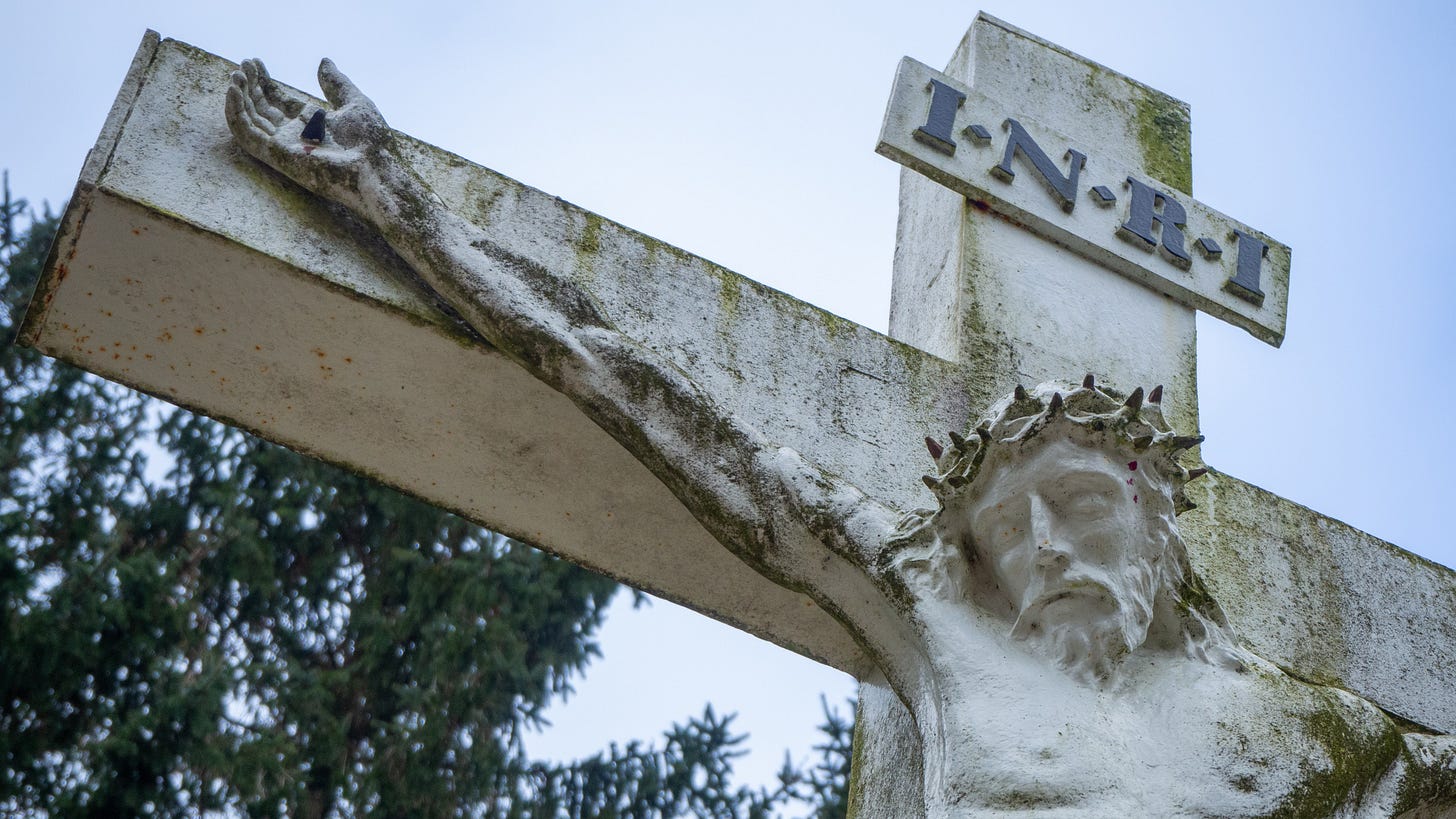Good Friday Reflection on Psalm 23
The Shepherd Himself Walks through the Valley of the Shadow of Death

Everyone who has taken a class with me has drummed into them the three OT texts that are most cited in the NT. And they are Psalms 2, 110, and 118. When the early church preached Jesus, their favourite texts to draw on were the Psalms. The Psalms are both “songs of experience” about faith and life, but they are also important for the declaration of the gospel, that Jesus is the crucified, risen, and exalted Lord. It is no understatement to say that the Psalms were the backbone of apostolic preaching because they told the story of the future of Israel’s king!
Now Psalm 23 has to be the most famous piece of the entire Bible, even though it is never once quoted in the NT. Even people who are not religious have often know Psalm 23. It is a Psalm that provides us with assurance that the Lord is our Shepherd, that he loves us, that he cares for us, and that he promises to watch over us. It is poetic and pastoral, it is iconic and inspiring. I’ve heard this Psalm read at funerals, beside hospital beds for the dying, and several sermons on this passage.
What is more, if we read this text as Christians, then for us, the Lord/Shepherd is none other than Jesus, who comforts us through the dark night of the soul and then hosts us at the great feast he has promised us. Normally when Psalm 23 is preached we hear that Jesus is our Good Shepherd and he invites us to the Wedding Supper of the Lamb. However, that is not how I read Psalm 23. One of the interesting things about the Psalms is that Christians read them not so much as Christ as the object, but Christ as the subject, that is, they heard Christ as the one speaking in the Psalm.
Here I’m inspired by my good friend Doug Green, who wrote an essay on Psalm 23 that was so brilliant that Doug found himself the recipient of a generous offer to take early retirement! Anyway, Doug’s interpretation of Psalm 23 is that we can or should read Jesus not only as the Shepherd, but as the one who speaks in the Psalm. What Doug urge us to do, is to engage in a genuine Christian reading, not to merely remember Christ as our Shepherd, but to think of Christ as the one who himself is praying this Psalm.
When I read Psalm 23, and I hear the voice of Jesus reading it, I don’t hear Jesus bursting with confidence saying, “Yeah, I’ll argue with these bozos in Jerusalem for a week, tell some good Sunday school stories, establish the Lord’s Supper – Zwinglian view of course – then get the awful crucifixion business over and done with, and then rock on with ruling the galaxy.” No, when I see Jesus in Psalm 23, I hear the voice of a man, just like us, praying to God to refresh his soul, to calm his fears, and to guide him in paths of righteousness as he approaches the single greatest adversary of his life.
If we read the Gethsemane story with Ps 23:4 in mind we can see Jesus’ fear about walking through the shadow of death. On the cross, Jesus is the Passover lamb, the Levitical scapegoat, the suffering servant, the mercy seat, for on him God unloads the sins of the world, he bears the transgression of others, and the judgment of God against our wickedness falls upon him. He is abandoned, forsaken, and cast aside as the dark veil of sin and shame completely swallows him up.
That’s why on the cross, he cries out with the words of Ps 22: “My God, my God, why have you forsaken me?” This cry is not about failure or betrayal, it the heart of the atonement! Jesus is abandoned, so God would always be near us. Jesus makes that cry of God-forsaken pain so that no child of God will ever know the misery of being forsaken. Jesus walks through the valley of the shadow of death ahead of us and for us.
We can take comfort from Psalm 23 because Jesus himself lived it!
That, for me, is what it means to read Psalm 23 on Good Friday.



